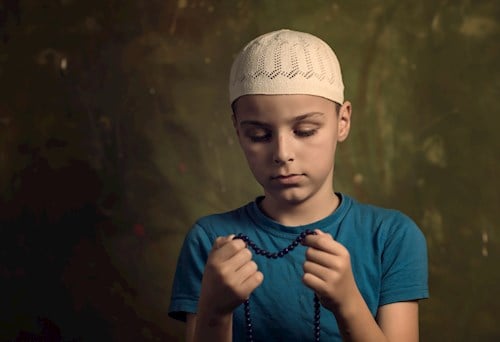Your Final 10 Nights for Gaza – Automate your charity in the blessed last 10 nights of Ramadan.
Schedule your donationsYour Final 10 Nights for Gaza – Automate your charity in the blessed last 10 nights of Ramadan.
Schedule your donationsYour Final 10 Nights for Gaza – Automate your charity in the blessed last 10 nights of Ramadan.
Schedule your donationsYour Final 10 Nights for Gaza – Automate your charity in the blessed last 10 nights of Ramadan.
Schedule your donations15th April 2019

Our pious predecessors would make du'a concerning Ramadan and divide this prayer into two parts of the year. For six months of the year before the start of Ramadan they would make the du'a: “Allahumma baligna Ramadan” (O Allah! Let us reach the month of Ramadan) and for six months after Ramadan they would pray for acceptance of their worship.
Linguistically, the word Ramadan comes from the Arabic root word ramad which means that which is intensely heated by the sun. The scholars have said this was because in this month the sins of the believers would burn off.
During the month of Ramadan, Muslims specifically abstain from consuming food and drink and sexual intimacy from sunrise to sunset. Before sunrise, Muslims are encouraged to eat a simple pre-dawn meal known as the Suhoor. At the time of sunset, Muslims break their fast and it is advised to do so with dates.
Ramadan is the month where giving in charity is encouraged. It is month where Muslims give more as the reward for good deeds is multiplied. Muslims also believe the reward of the fasting person is enormous.
Often when discussing Ramadan, many Muslims misconstrue the meaning of Ramadan. It is often stated as the month where Muslims “remember the poor”; whilst this is a virtuous result of the month, it is not the primary goal that is emphasised in the Quran. In Surah Baqarah (2:183), Allah instructs the believers to fast:
If you just reflect, considering Muslims abstain from food and drink and sexual intimacy during their fast, you would think we would be depleted and anxious at the prospect of the arrival of Ramadan, yet you will find that millions who observe this joyous month are in anticipation for its arrival with great eagerness? Therein lies an indicator towards our compensation. An indicator to our purpose, and why we as Muslims need Ramadan, in order to survive in this Dunya.
Ramadan is the perfect training ground for our spiritual development. If we examine deeper, we will see how Ramadan teaches us about our state as human beings. How we react to the moments in our lives that test us. When we have to let go of things that we love and break attachments that do not serve us. We learn that when Allah takes something away from us, it is here we witness a great miracle. He takes only to Give. And we learn this in a powerful way.
Ramadan is an opportunity to purge yourself from impure thoughts, deeds and actively endeavour to focus on the internal aspects of your character. All that we do externally is having an effect on us internally. This process of purification is known as Tazkiya, and interestingly it shares the same root of the word Zakah, which means the purification of money. Tazkiya is the purification of the nafs. The same way we purify our money by giving a percentage of it, when we purify our nafs we are able to tame it. The way we tame our nafs is through the abstinence of food and drink, and then drowning the nafs with dhikr.
This leads us to the primary goal of Ramadan: Taqwa. Often times Taqwa is translated as “Fear of Allah” or “God Consciousness” but examine the root and you will see it means “to shield/protect yourself”. Now ask yourself what is Allah asking you to protect yourself from? It is a protection from your sins. A protection from your lowly desires. A protection from the Shaytan. If you protect yourself, you stand a greater chance of safeguarding yourself from the displeasure of Allah.
In the context of fasting, the more you restrict yourself from things that are normally permissible, the more you will stand a chance at restricting what is impermissible. Simply, if you exercise and control your intake externally, you will be more likely to focus and control the internal desires. When food and drink is restricted, it opens the pathway to humility. Truly knowing that Allah alone deserves our worship and we can be more cognisant of Him of our intake when many of the distractions are removed. Thus succeeding in a greater chance of obtaining Taqwa. It is in this month we learn Ramadan teaches us that the pinnacle of our success is always with Allah.
May Allah extinguish the darkness from our own selves and remove us from the whispers of the Shaytan and protects us from His wrath. May this Ramadan be a means of deeper inward cleansing and purification, and may we leave the month, forgiven and in a state of pureness, better than having entered, ameen.